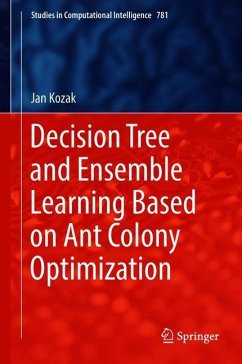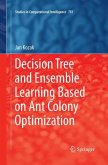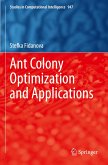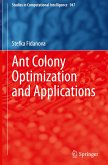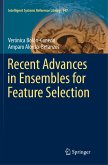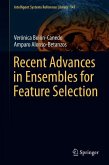This book not only discusses the important topics in the area of machine learning and combinatorial optimization, it also combines them into one. This was decisive for choosing the material to be included in the book and determining its order of presentation.
Decision trees are a popular method of classification as well as of knowledge representation. At the same time, they are easy to implement as the building blocks of an ensemble of classifiers. Admittedly, however, the task of constructing a near-optimal decision tree is a very complex process.
The good results typically achieved by the ant colony optimization algorithms when dealing with combinatorial optimization problems suggest the possibility of also using that approach for effectively constructing decision trees. The underlying rationale is that both problem classes can be presented as graphs. This fact leads to option of considering a larger spectrum of solutions than those based on the heuristic. Moreover, ant colony optimization algorithms can be used to advantage when building ensembles of classifiers.
This book is a combination of a research monograph and a textbook. It can be used in graduate courses, but is also of interest to researchers, both specialists in machine learning and those applying machine learning methods to cope with problems from any field of R&D.
Decision trees are a popular method of classification as well as of knowledge representation. At the same time, they are easy to implement as the building blocks of an ensemble of classifiers. Admittedly, however, the task of constructing a near-optimal decision tree is a very complex process.
The good results typically achieved by the ant colony optimization algorithms when dealing with combinatorial optimization problems suggest the possibility of also using that approach for effectively constructing decision trees. The underlying rationale is that both problem classes can be presented as graphs. This fact leads to option of considering a larger spectrum of solutions than those based on the heuristic. Moreover, ant colony optimization algorithms can be used to advantage when building ensembles of classifiers.
This book is a combination of a research monograph and a textbook. It can be used in graduate courses, but is also of interest to researchers, both specialists in machine learning and those applying machine learning methods to cope with problems from any field of R&D.

